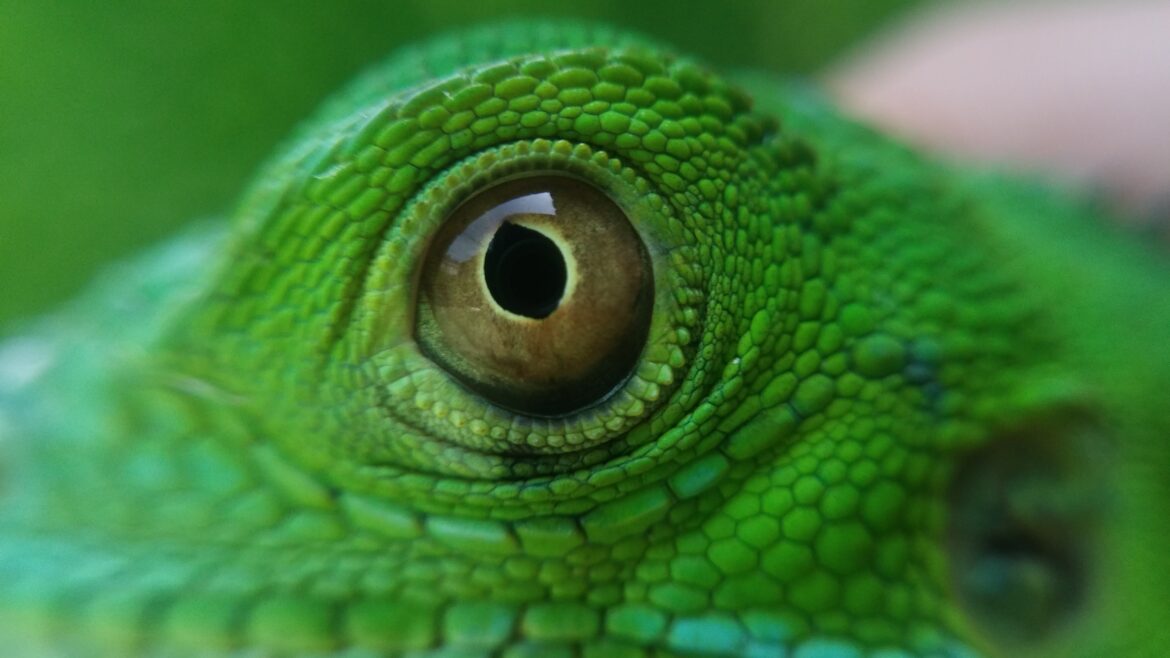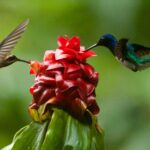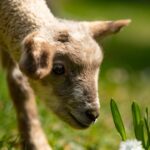For this Lent, the Revd Dr Susan Bubbers encourages us to pause, reflect and consider what we might learn from some of the humblest of God’s creatures.
Take a walk with me and learn more about how to listen to the Lord during Lent. Our teachers will be the lizards.
There is a Hebrew word which occurs often in the Psalms, selah. A helpful translation is “to pause and ponder.” Encounter the Lord this season by slowing down and “selah-ing”. Learn to pause and ponder the creatures God has created, creatures who are often intended to be our tutors about things spiritual.
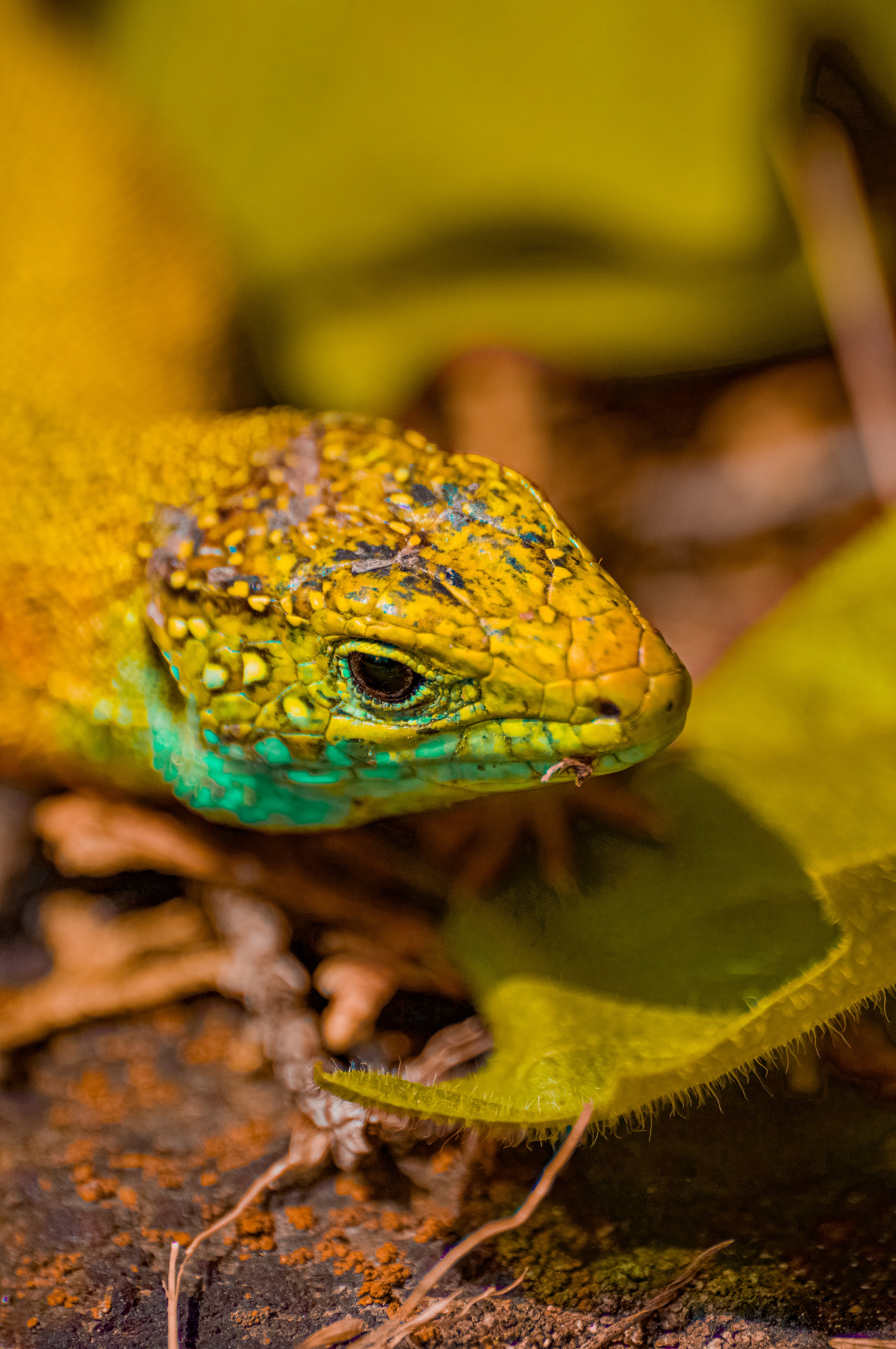 Proverbs 6 has much to say about how creatures can be our tutors. A gazelle embodies what it means to deliver yourself from snares (vs. 5). Proverbs 6:6 tells us to “Go to the ant, oh sluggard, observe her ways and be wise”. Then verses 7-8 detail a few of the lessons to learn from the ant, such as self-motivation, foresight, delayed-gratification, and hard work.
Proverbs 6 has much to say about how creatures can be our tutors. A gazelle embodies what it means to deliver yourself from snares (vs. 5). Proverbs 6:6 tells us to “Go to the ant, oh sluggard, observe her ways and be wise”. Then verses 7-8 detail a few of the lessons to learn from the ant, such as self-motivation, foresight, delayed-gratification, and hard work.
Proverbs 30:28 presents a lizard to us as one that seems subject to be squashed by any human hand, yet it can go anywhere unhindered, even into the most privileged of places. “The lizard you may grasp with the hands, yet it is in kings’ palaces.” This lizard is our tutor for the spiritual lesson that God can position you wherever He wills, regardless of how insignificant you may feel. This proverb presents a lizard to us to “selah” and learn not just one specific lesson, but so much more as we continue to pause and ponder. What else can lizards teach us?
I was walking my beloved dog Bosco on Christmas morning, early. A cold front had brought frigid weather overnight. Well, frigid for Florida anyway, in the low 40s F, with wind in the low 30s. We saw something odd in the middle of the sidewalk just ahead of us. Bosco nosed a lizard, on its back, motionless.
Not knowing then what I know now about how lizards react to cold weather, I thought it was dead. And I decided it should have a more dignified final-resting place in the grass. I gently picked up its (or her… let’s call it a her) sleek green body. She was a cute Green Anole Anolis carolinensis. Then I realized, she was still soft, rather than stiff as I expected. And a thought went through my mind.
Lizards are cold blooded. Maybe she is just numbed by the cold, like my fingers are at this moment. So, I carefully put her in my big coat pocket along with my clean Kleenex, and while trying not to jostle her too much, continued our walk. She was sleek, elegant, smooth, almost florescent green, and with a long tail. I hoped she would be alright, and breathed a quick prayer, for I know God cares about everything He creates.
About 10 minutes later, Bosco and I found another. This time, it was an Eastern Fence Lizard Sceloporus undulatus, with a rougher, scaley appearance of a mixture of various shades of browns and grays. Also, on its back. Sure enough, its (well, let’s call this one a him)… his texture was the same as hers. Cold but not deathly-stiff yet. So, in he went to my other big coat pocket.
I then cut my walk short, and Bosco being chilled didn’t seem to mind. We headed home.
I began to fashion my morning meditations around these occupants of my pockets. After all, Scripture exhorts us to do exactly that. What could I learn about spiritual truths, from these immobilized lizards, if I “selah’ed” about them? My first step was to learn more about their natural lives; then, I trusted the Lord would show me truths about my spiritual life.
It only took a moment online to discover I was not the only one to encounter freezing lizards recently. An article form December 22, 2020, in USA Today was entitled, “Falling iguana alert! Cold weather in Florida may cause iguanas to fall out of trees. But they’re not dead.”
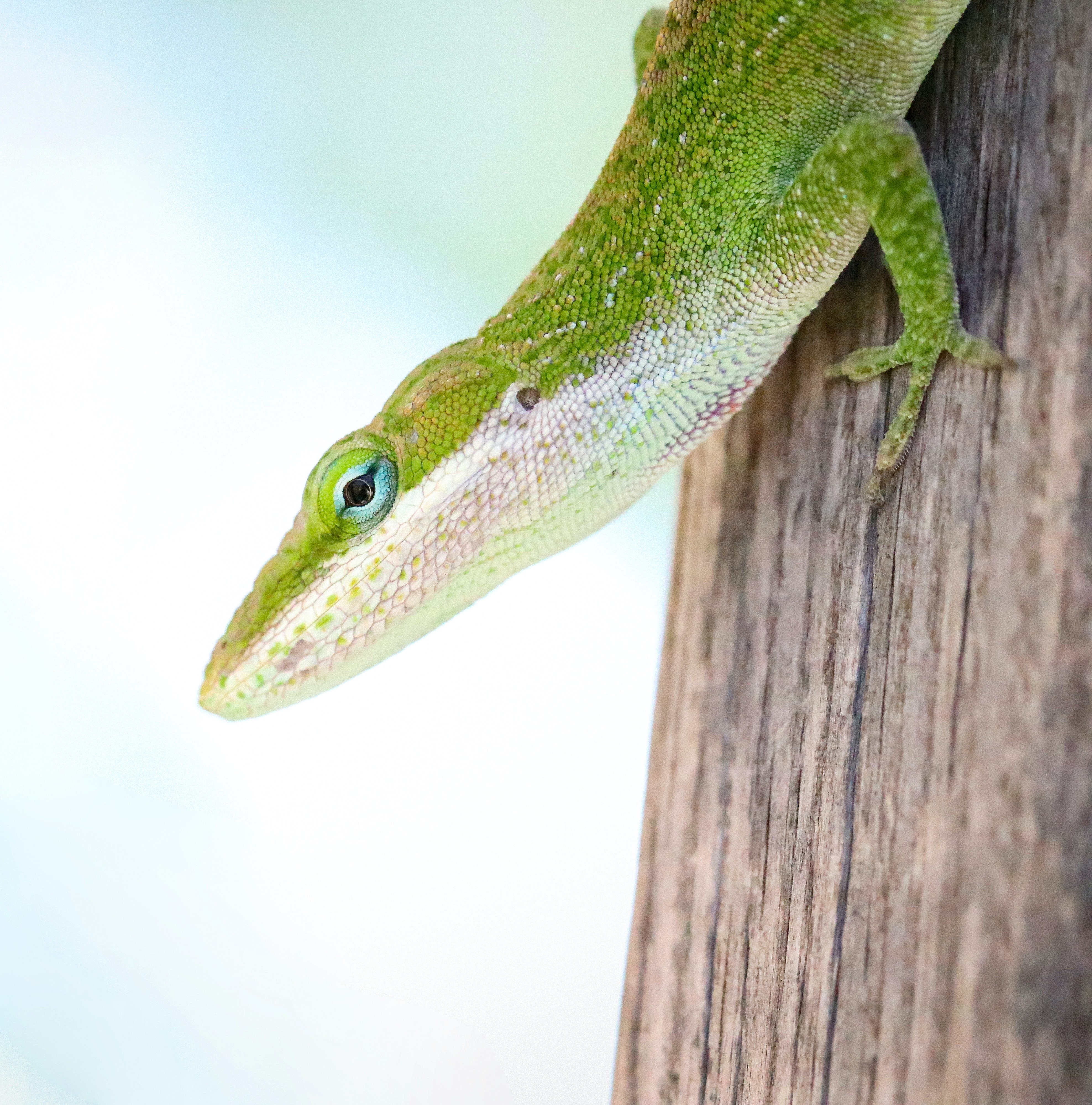 In that article, Doyle Rice writes, “The National Weather Service in Miami on Monday issued an unofficial warning for possible ‘falling iguanas’ later this week, due to a cold snap that’s forecast to chill the Sunshine State by Christmas Day. ‘Brrr!’ the Weather Service tweeted. ‘Much colder temps expected for Christmas. Low temperatures in the 30s/40s and falling iguanas are possible.’” and “Earlier this year, during a cold spell in January, the Weather Service in Florida said that ‘iguanas are cold blooded. They slow down or become immobile when temps drop into the 40s. They may fall from trees, but they are not dead.’ ”
In that article, Doyle Rice writes, “The National Weather Service in Miami on Monday issued an unofficial warning for possible ‘falling iguanas’ later this week, due to a cold snap that’s forecast to chill the Sunshine State by Christmas Day. ‘Brrr!’ the Weather Service tweeted. ‘Much colder temps expected for Christmas. Low temperatures in the 30s/40s and falling iguanas are possible.’” and “Earlier this year, during a cold spell in January, the Weather Service in Florida said that ‘iguanas are cold blooded. They slow down or become immobile when temps drop into the 40s. They may fall from trees, but they are not dead.’ ”
Another quick online search led me to another article which says, “Lizards are cold-blooded animals, which means they rely on their environment to help warm their bodies. They use the heat of the sun to raise their body temperatures and are active when their bodies are warm. The sun also helps lizards produce vitamin D.”
Now, what can these natural facts teach me about me, my spiritual life, and my relationship with God? What could I learn from lizards today? I breathed a simple prayer, “Lord, teach me through your creatures.” Natural facts can lead to correlating spiritual truths, when we selah and ask the Spirit for insight.
For example, lizards are cold-blooded. This means their body temperature is determined solely by their environment. They must absorb warmth from an external source. Another term for this is that they are ectotherms. This is quite different from being warm-blooded, such as we humans and other mammals and even birds. We endotherms have internal functions that can generate heat. We have some ability to regulate our own body temperatures, albeit autonomically and not consciously.
Here is one specific take-away for spiritual life from one simple morning’s walk and meditation upon God’s creatures the lizards:
We humans may be physically warm-blooded and able to self-regulate body temperature. However, we humans are “spiritually cold-blooded.” We cannot self-regulate the state of our souls. For example, we cannot, neither autonomically nor consciously, change our level of hope or peace. Not with purely human abilities. If humans could do that, then every non-Christian as well as every Christian could at-will become full of hope and peace!
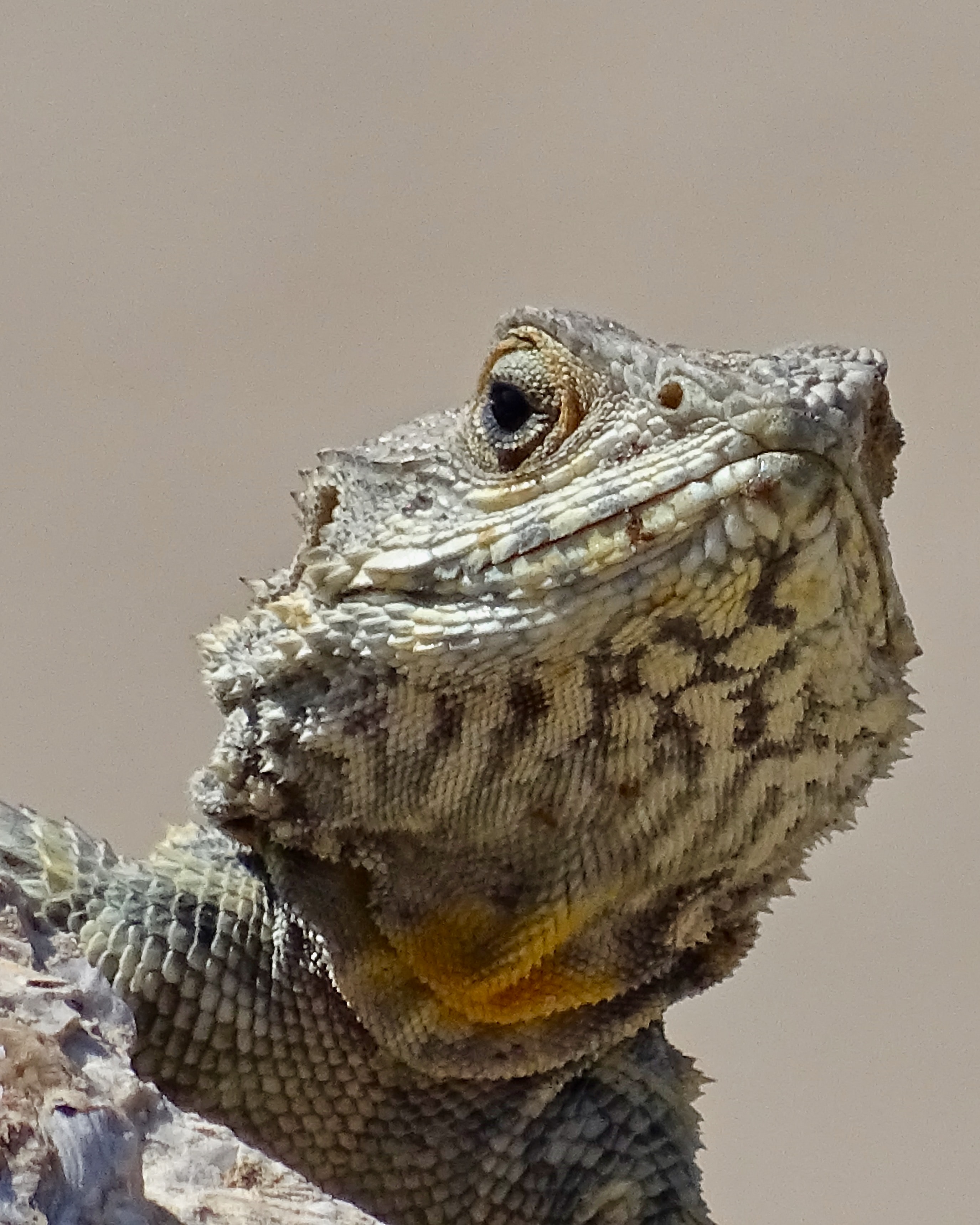 No, we are completely dependent upon the “environment of the Spirit of God” for the warmth and health of our spiritual lives. Only from the environment of God’s Spirit can I receive, can I absorb, the grace of God needed for my spiritual well-being.
No, we are completely dependent upon the “environment of the Spirit of God” for the warmth and health of our spiritual lives. Only from the environment of God’s Spirit can I receive, can I absorb, the grace of God needed for my spiritual well-being.
This is why we go to church regularly, why we develop routines for frequent times of Bible Study and prayer, why we arrange our schedules to fellowship with other believers, and why we go for walks listening for the Spirit to speak through lizards. These are all examples of how we can position ourselves in the Light and Love of God’s presence. And without regular immersion in the environment of God’s Spirit, we will spiritually freeze and be immobilized.
When I got home from my walk that Christmas morning, I gently put her and him in the sunlight in a protected area of my back porch, safe from foot traffic, hungry birds, and cold winds. Not immediately, but soon, they both began to slowly move their heads from side to side, as if getting their bearings. Then, each scampered happily off to discover the plants and potential breakfasts that were awaiting them not far away in the healing sunshine.
In Lent, slow down, selah, take time to intentionally pause and ponder even the “little things” you encounter in God’s creation each day. And remember to do all in your power to preserve God’s creatures and further their welfare. This is important not only because they are precious in God’s sight, and because God has commissioned us to carefully care for them, but also because they are a unique, irreplaceable source of insight and instruction.
Praise God for lizards, one of our tutors in Lent!
 The Rev. Dr. Susan I. Bubbers is Dean of the ATLAS Theological Center, a seminary Professor, church-planter and Fellow of the Oxford Centre for Animal Ethics.
The Rev. Dr. Susan I. Bubbers is Dean of the ATLAS Theological Center, a seminary Professor, church-planter and Fellow of the Oxford Centre for Animal Ethics.


